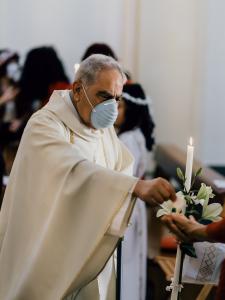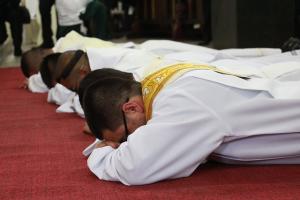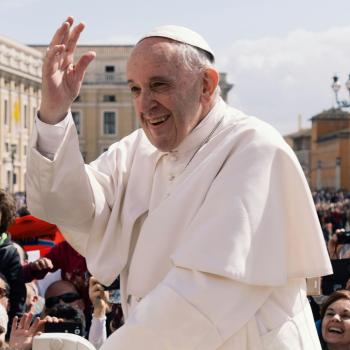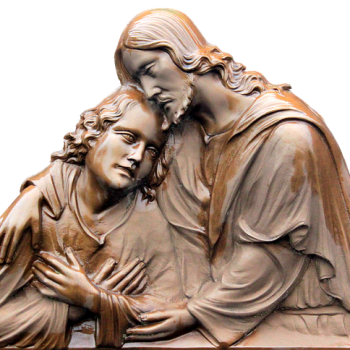The subject of married priests is one that is broached frequently among Catholics. It is supposed that more men would be interested in the priesthood if they didn’t have to take a vow of celibacy.
The reason for the increased consideration of this change is the shortage of priests, which has resulted in multiple problems. There are not enough to serve all the parishes, leaving priests unsurprisingly stressed, fatigued and lonely.
Many do not now have the companionship of other priests in the rectory, and the pandemic has increased their separation from others. All of this is particularly hard to bear considering that half of U.S. priests are of retirement age and need care, not isolation.

International Advocacy for Married Priests
The crisis exists in many countries. In Ireland, the spokesman for the Association of Catholic Priests, Fr. Ray Donovan, says that Irish priests would support radical changes.
According to a recent interview with Nick Bramhill, writing for IrishCentral.com, Fr. Donovan said, “The priesthood needs to be reinvented here, and big changes are needed to breathe new life into the Church.”
The Irish priests are hoping that the Synod in Rome in 2023 will bring about this change and put it on the fast track. https://www.irishcentral.com/news/majority-irish-priests-seek-catholic-church-reform
At a previous Synod in Rome in the Fall of 2019, the bishops of Latin America voted to allow married men to become priests in response to a severe shortage in the Amazon region. The proposal carried by a vote of 128 to 41.
In December of 2019, German Bishop Heinrich Timmerevers said he was open to allowing some priests to marry though he considers celibacy the ideal.
If I might propose a possible resolution: allow diocesan priests to marry but require priests in religious orders to be celibate.
Seeking a Solution
There are a number of contributing factors to this shortage. Each of these factors needs to be considered and remedied where possible. Most important to the process is that the discussion be held church-wide, involving all constituencies.
Different world views must be represented by people with a vast array of experiences. This must not be a clerical-only decision if it is to be accepted by the Church membership. Clericalism has been at the root of many Church problems like abuse and corruption, so a more transparent, democratic process is needed.
Not that morality and God’s laws can be subject to popular vote. Learned theologians, clerical and lay, are of paramount importance to determine God’s instructions on this matter. The writings of early Church leaders is also key.
However, if it should be shown that the practice is one that stems more from tradition than dogma, more from ideals than practicality, then there should be a respectful examination of possible alternatives.

Critics say allowing priests to marry may dilute the unique character of the priesthood or appease a delusion that married pastures are somehow greener. A long-held objection to married priests has been that a wife and children would distract from a priest’s pastoral duties.
It would be easy to investigate this concern by asking for testimonies from other denominations, such as Greek Orthodox and Anglican, with long experience on this issue.
We can also ask for advice from the married Episcopalian priests who have converted to Catholicism. I have been in two parishes with such priests, where they were met with easy acceptance, and all went well.
Should the approval of married priests meet with opposition from some congregations, maybe those could be sent a traditional priest while amenable parishes could be served by married priests. Possibly an administrative nightmare, but an option.
The Need for a Rapid Response
Fr. Donovan predicts an end to the ways of the Catholic Church saying that “changes have to come, and they will come, because if they don’t there will be nothing left of the Church.”
That opinion is a bit more dire than mine, but I am open to allowing priests to marry. I do not think it is impossible, as some do, for men to live celibate. We have many centuries of living proof to the contrary. To say otherwise is to demean male morality, dedication and honor.
Nonetheless, changes need to come and quickly. I know that institutions like the Church generally move glacially, but there has already been much study and discussion on this matter, so it is time to act.
Appropriate committees are likely preparing proposals on married priests for the 2023 Synod. At that time, we need a decision for the good of Catholicism and the welfare of its priests.












